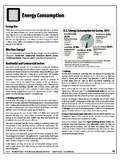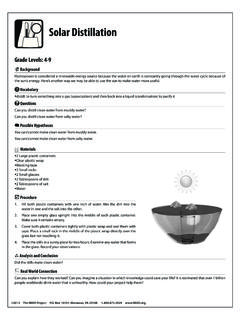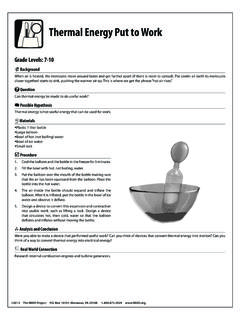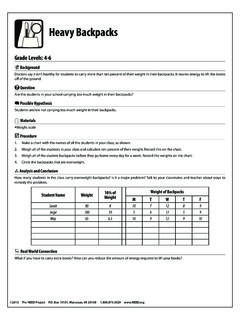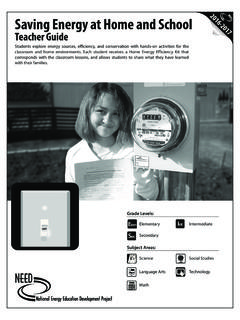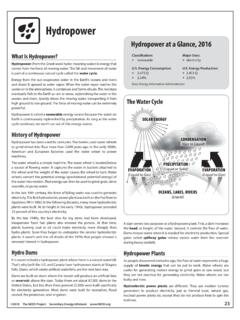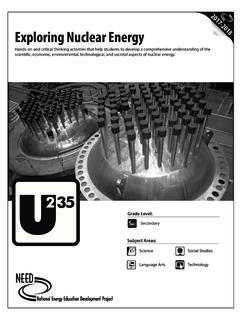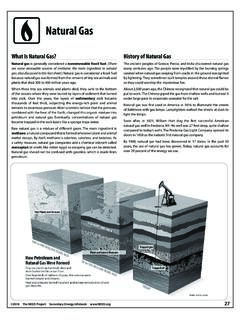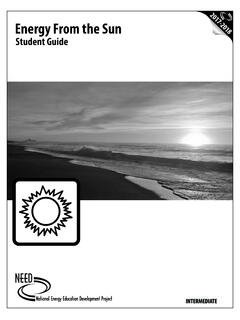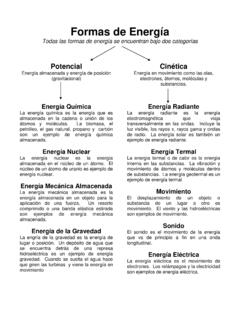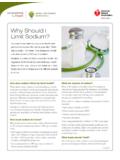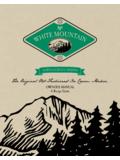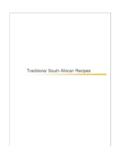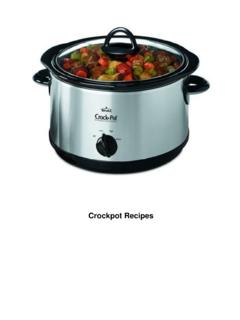Transcription of Frozen Salt - The NEED Project
1 2013 The NEED Project Box 10101, Manassas, VA 20108 SaltGrade Levels: 7-10 BackgroundMatter comes in three forms: solid, liquid, and gas. Solid water is called ice. It becomes ice through freezing. When ice is melted it becomes liquid. If liquid water is heated, it becomes a gas, or steam. When you change a solid to liquid or liquid to gas, or even a liquid to a solid, energy must be added or removed. Some materials need more energy to freeze or melt than others. ? QuestionWhat does salt do to the freezing point of water? Possible HypothesisAdding salt _____ the freezing point of water.
2 Materials 4 8-ounce plastic cups Measuring cup Table salt (sodium chloride) Freezer Thermometer Teaspoon Procedure1. Fill four cups ,each with six ounces of tap water. Add a teaspoon of salt to one cup, two teaspoons to the second, and three teaspoons to the third. Leave the fourth as your control. 2. Place the cups in the freezer. Observe the cups periodically until a thin layer of ice forms on the top of the water, and then record the temperature of each cup. 3. Record your observations. Analysis and ConclusionDid adding salt lower the freezing temperature of the water?
3 What was the effect of adding more salt to the water? Can you think of ways that this knowledge can be put to work for you?
